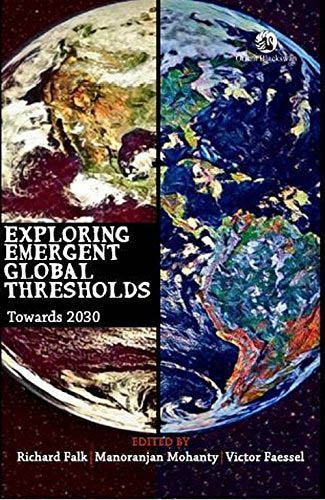‘…the gaze forward in time is always in the last analysis an exercise of the imagination.’ It shapes both the realist and speculative forays of this galaxy of acknowledged scholars looking towards 2030, but as Victor Faessel reminds us, each of the chapters of this volume represents a thematization, more or less explicit, of conflict over dominant imaginaries. Also knitting them together is a shared ethical standpoint of struggling to envisage an alternative approach of diverse groups with divergent values living well together. In encouraging these contributors’ analytical commentaries to imagine a future from within the framework of the present, this book project determinedly challenges what Richard Falk decries as the policy elite’s stubborn preoccupation with the short term. It is that frustration which pulls Falk towards a ‘hotter’ imagination that kindles apocalyptic fires as he joins climate scientists in announcing the arrival of the Anthropocene Age. Human activity has cumulatively put the survival of the planet at risk. Nature is no longer just a backdrop with human activity autonomous, and the fate of the human species is bound up with sustainable collaboration between humans and nature.

Will Tomorrow Look A Lot Like Today?
Rita Manchanda
EXPLORING EMERGENT GLOBAL THRESHOLDS: TOWARDS 2030 by Richard Falk, Manoranjan Mohanty, Victor Faessel Orient BlackSwan, 2017, 371 pp., 1050
December 2017, volume 41, No 12
